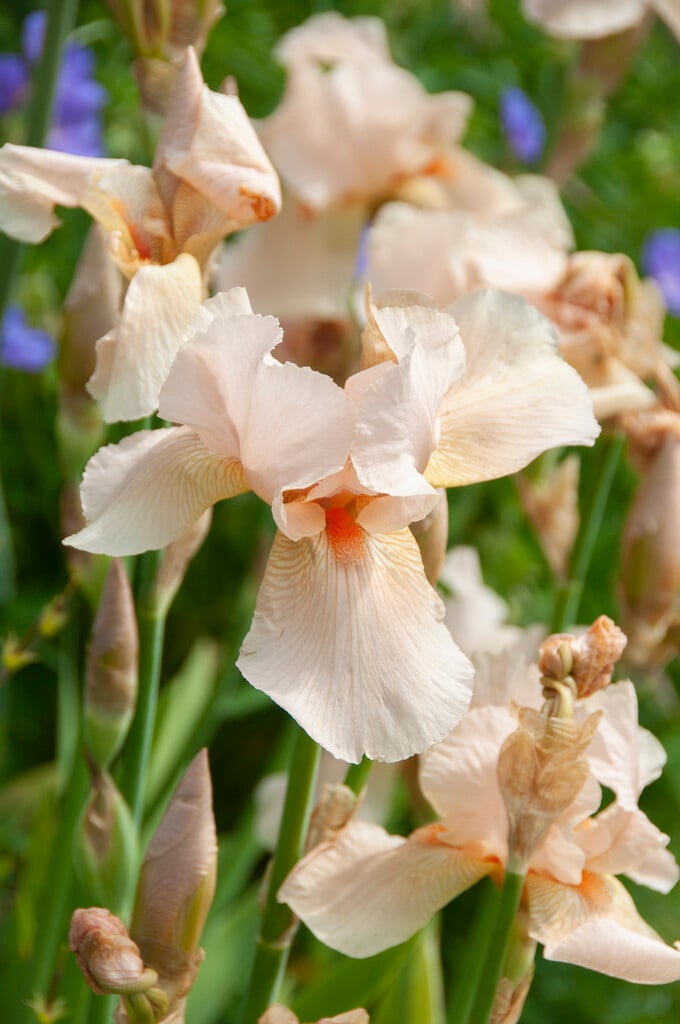Iris mesopotamica
bearded iris
A species of evergreen perennial with sword-shaped, grey-green leaves. Large, showy, fragrant flowers come in a wide range of colours and shades and appear from May to June
Size
Ultimate height
0.5–1 metresTime to ultimate height
2–5 yearsUltimate spread
0.1–0.5 metresGrowing conditions
Moisture
Well–drainedpH
Alkaline, NeutralColour & scent
| Stem | Flower | Foliage | Fruit | |
| Spring | Black Blue Orange White Pink Purple Red Yellow | Green Grey Silver | ||
|---|---|---|---|---|
| Summer | Green Grey Silver | |||
| Autumn | Green Grey Silver | |||
| Winter | Green Grey Silver |
Position
- Full sun
Aspect
South–facing or West–facing or East–facing
Exposure
Exposed or Sheltered Hardiness
H6Botanical details
- Family
- Iridaceae
- Native to GB / Ireland
- No
- Foliage
- Evergreen
- Habit
- Clump forming
- Potentially harmful
- Harmful if eaten. Wear gloves and other protective equipment when handling. Pets: Harmful if eaten. For further information and contact numbers regarding pets, see the HTA guide to potentially harmful plants
- Genus
Iris may be rhizomatous or bulbous perennials, with narrow leaves and erect stems bearing flowers with 3 large spreading or pendent fall petals, alternating with 3 erect, often smaller, standard petals, in late winter, spring or early summer
- Name status
Correct
- Plant range
- Turkey
How to grow
Cultivation
Grow in well-drained or sharply drained neutral or slightly alkaline soil. Ideal at the base of a sunny wall
Propagation
Propagate by dividing irises from midsummer to early autumn, plant immediately in flowering positions
Suggested planting locations and garden types
- Coastal
- City and courtyard gardens
- Cottage and informal garden
- Patio and container plants
- Wall side borders
- Banks and slopes
- Cut flowers
- Flower borders and beds
Pruning
Cut back after flowering
Pests
Diseases
May be susceptible to aphid-borne viruses, bacterial soft rot and grey moulds; see Iris diseases
Get involved
The RHS is the UK’s gardening charity, helping people and plants to grow - nurturing a healthier, happier world, one person and one plant at a time.
